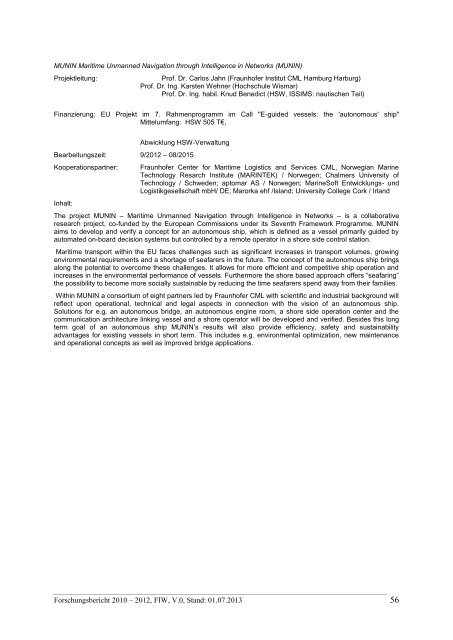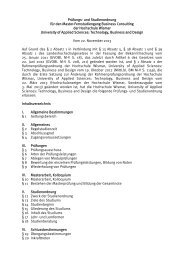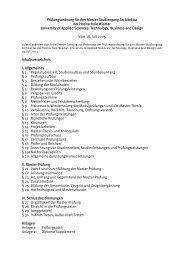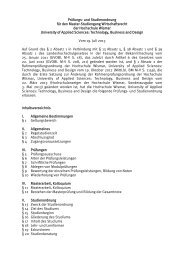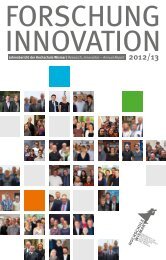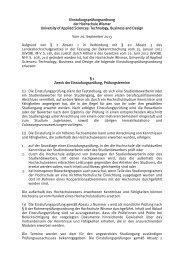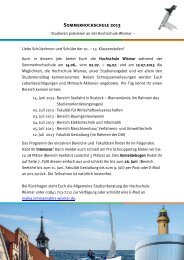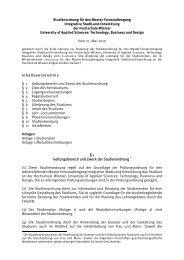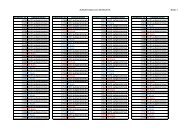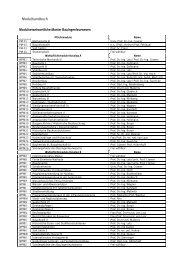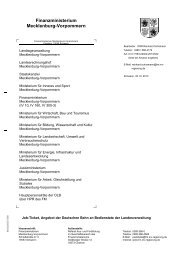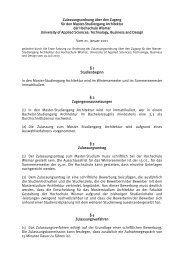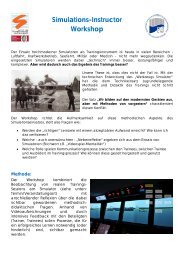Forschungsbericht der Fakultät für Ingenieurwissenschaften 2010
Forschungsbericht der Fakultät für Ingenieurwissenschaften 2010
Forschungsbericht der Fakultät für Ingenieurwissenschaften 2010
Erfolgreiche ePaper selbst erstellen
Machen Sie aus Ihren PDF Publikationen ein blätterbares Flipbook mit unserer einzigartigen Google optimierten e-Paper Software.
MUNIN Maritime Unmanned Navigation through Intelligence in Networks (MUNIN)<br />
Projektleitung:<br />
Prof. Dr. Carlos Jahn (Fraunhofer Institut CML Hamburg Harburg)<br />
Prof. Dr. Ing. Karsten Wehner (Hochschule Wismar)<br />
Prof. Dr. Ing. habil. Knud Benedict (HSW, ISSIMS: nautischen Teil)<br />
Finanzierung: EU Projekt im 7. Rahmenprogramm im Call "E-guided vessels: the 'autonomous' ship"<br />
Mittelumfang: HSW 505 T€,<br />
Abwicklung HSW-Verwaltung<br />
Bearbeitungszeit: 9/2012 – 08/2015<br />
Kooperationspartner:<br />
Inhalt:<br />
Fraunhofer Center for Maritime Logistics and Services CML, Norwegian Marine<br />
Technology Resarch Institute (MARINTEK) / Norwegen; Chalmers University of<br />
Technology / Schweden; aptomar AS / Norwegen; MarineSoft Entwicklungs- und<br />
Logistikgesellschaft mbH/ DE; Marorka ehf /Island; University College Cork / Irland<br />
The project MUNIN – Maritime Unmanned Navigation through Intelligence in Networks – is a collaborative<br />
research project, co-funded by the European Commissions un<strong>der</strong> its Seventh Framework Programme. MUNIN<br />
aims to develop and verify a concept for an autonomous ship, which is defined as a vessel primarily guided by<br />
automated on-board decision systems but controlled by a remote operator in a shore side control station.<br />
Maritime transport within the EU faces challenges such as significant increases in transport volumes, growing<br />
environmental requirements and a shortage of seafarers in the future. The concept of the autonomous ship brings<br />
along the potential to overcome these challenges. It allows for more efficient and competitive ship operation and<br />
increases in the environmental performance of vessels. Furthermore the shore based approach offers “seafaring”<br />
the possibility to become more socially sustainable by reducing the time seafarers spend away from their families.<br />
Within MUNIN a consortium of eight partners led by Fraunhofer CML with scientific and industrial background will<br />
reflect upon operational, technical and legal aspects in connection with the vision of an autonomous ship.<br />
Solutions for e.g. an autonomous bridge, an autonomous engine room, a shore side operation center and the<br />
communication architecture linking vessel and a shore operator will be developed and verified. Besides this long<br />
term goal of an autonomous ship MUNIN’s results will also provide efficiency, safety and sustainability<br />
advantages for existing vessels in short term. This includes e.g. environmental optimization, new maintenance<br />
and operational concepts as well as improved bridge applications.<br />
<strong>Forschungsbericht</strong> <strong>2010</strong> – 2012, FIW, V.0, Stand: 01.07.2013 56


